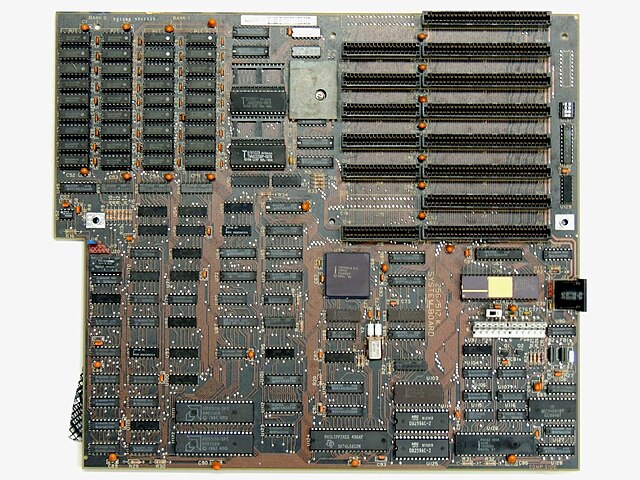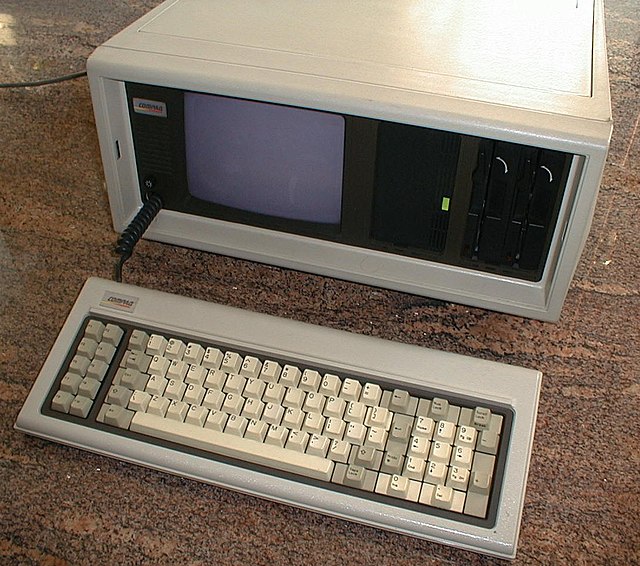In the era of IBM compatible personal computers, the AT form factor comprises the dimensions and layout of the motherboard for the IBM AT. Baby AT motherboards are slightly smaller, measuring 8.5" by 13". Like the IBM PC and IBM XT models before it, many third-party manufacturers produced motherboards compatible with the IBM AT form factor, allowing end users to upgrade their computers for faster processors. The IBM AT became a widely copied design in the booming home computer market of the 1980s. IBM clones made at the time began using AT compatible designs, contributing to its popularity. In the 1990s many computers still used AT and its variants. Since 1997, the AT form factor has been largely supplanted by ATX.
IBM PC AT System Board. This is the original AT motherboard on which the form factor was based.
Keyed AT-style power connectors to prevent improper insertion.
Baby AT motherboard
An ATX Form Card, used by later Baby-AT motherboards to allow for USB, PS/2 mouse, and IR connectivity through headers
IBM PC compatible computers are similar to the original IBM PC, XT, and AT, all from computer giant IBM, that are able to use the same software and expansion cards. Such computers were referred to as PC clones, IBM clones or IBM PC clones. The term "IBM PC compatible" is now a historical description only, since IBM no longer sells personal computers after it sold its personal computer division in 2005 to Chinese technology company Lenovo. The designation "PC", as used in much of personal computer history, has not meant "personal computer" generally, but rather an x86 computer capable of running the same software that a contemporary IBM PC could. The term was initially in contrast to the variety of home computer systems available in the early 1980s, such as the Apple II, TRS-80, and Commodore 64. Later, the term was primarily used in contrast to Apple's Macintosh computers.
The Compaq Portable was one of the first nearly 100% IBM-compatible PCs.
The original IBM PC (Model 5150) motivated the production of clones during the early 1980s.
The DEC Rainbow 100 runs MS-DOS but is not compatible with the IBM PC.
MS-DOS version 1.12 for Compaq Personal Computers








